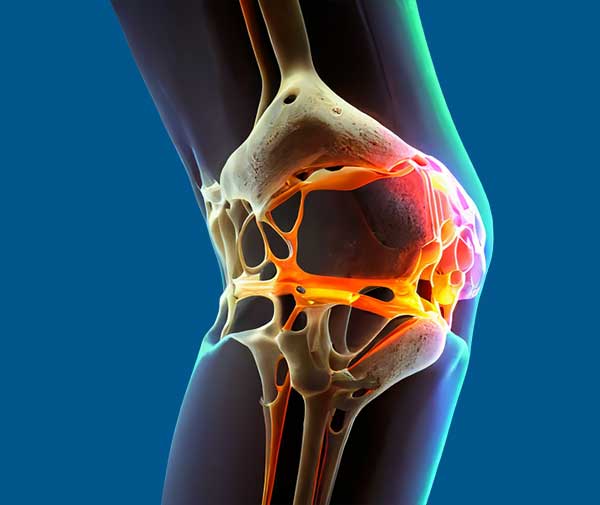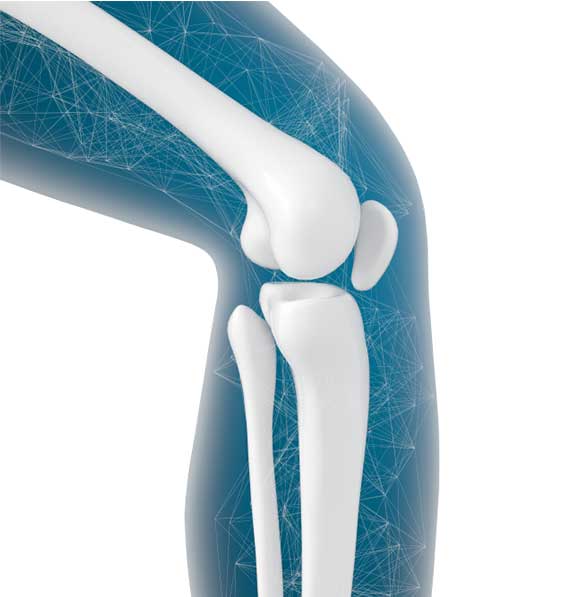
 Knee Replacement Surgery
Knee Replacement SurgeryKnee replacement surgery is one of the most frequently performed orthopedic or musculoskeletal surgical procedures in highly affordable cost brackets. Globally, the number of cases performed is rising exponentially, although procedural rates vary greatly across countries and regions. Primarily, the surgery addresses the debilitating effects of knee osteoarthritis, characterized by excruciating pain and diminished functionality, impacting the quality of life. The decision to undergo surgery lacks precise criteria and is influenced by various factors including patient and surgeon preferences.
Most patients who receive a knee replacement have outstanding clinical outcomes. However, many research investigations indicate that few of patients do not respond well to the treatment. As a result, even with the procedure's exceptional long-term survivorship, its success also depends on the surgeon's expertise, availability of required infrastructure, and proficiency with technically advanced surgical equipment.
Although it has long been thought that altering the design of implants would improve results, there is growing awareness that better implantation techniques, preventing complications, and enhancing patient perioperative care, such as more intensive recovery programs, can also lead to outstanding improvements in overall procedural outcomes.
The integration of new technologies holds promise for advancing knee replacement care in the future. However, their implementation requires careful regulation and vigilant monitoring to safeguard patient well-being. If you or your loved ones are suffering from knee joint degeneration, then you are at the right place. Dr. Ishwar Bohra is one of the top knee replacement surgeon in Delhi, India. He has earned great merits and has been recognised as one of the best doctors for knee replacement surgery in India. People are experiencing best outcomes from the surgeries performed by Dr. Bohra.
Schedule a call
Get accurate insights for your joint issues and the best personalized treatment plan for it. We believe in restoration of your joint functions maximally, taking care of your unique needs.
Contact Us
 Knee Replacement Surgery
Knee Replacement SurgeryThrough knee replacement surgery, damaged or worn-out knee or parts of it are replaced partially or completely with implants/prosthetics via surgical intervention. The procedure can improve knee function and reduce pain. Damaged bone and cartilage are replaced during the procedure with metal and plastic components.
Your surgeon will examine your knee's strength, stability, and range of motion to determine if a replacement is the best course of action for you. X-rays support the damage assessment. The appropriateness of joint prosthetics and surgical methods for you will depend on your age, weight, degree of physical activity, knee dimensions, and general health status.
Your orthopedic surgeon will advise you full or partial replacement depending upon the extent and severity of damage:
The most common kind of knee replacement procedure is a total knee replacement. All three components of your knee joint (medial, lateral, and patellofemoral) will all be replaced by your surgeon.
This is precisely what it sounds like. A partial knee replacement is performed if your knee joint is not completely damaged. Your surgeon will likely replace only those components of the knee that are degenerated. After suffering an injury or trauma, younger adults are more likely to undergo partial knee replacements.
Reducing arthritis pain is the most common reason for knee replacement surgery. Knee joint replacement may be advised by your healthcare professional if:
This surgery is typically performed on patients 60 years of age and older. Younger patients who have had knee replacements may overuse their prosthetic knee, shortening its lifespan and causing it to wear out more quickly.

Following are the preparatory steps for the surgery:
Surgeons often replace just the damaged portion of the knee if only one portion is affected. The thigh and shin bone ends are reshaped, and the joint is completely resurfaced, if the knee joint is severely damaged and complete replacement of the joint is necessary. These bones are composed of hard tubes with soft centers. The soft middle region of the bones receives the ends of the artificial components.
Tissue bands called ligaments aid in keeping joints together. The surgeon might select implants with connectable components if the knee's ligaments are insufficiently strong to hold the joint together on their own. Following are the steps involved in the surgery:
Renowned for his groundbreaking work in joint restoration, Dr. Ishwar Bohra keeps pushing the frontiers of innovation with his latest research backed procedures. By employing advanced techniques and evidence-based strategies, Dr. Bohra ensures the best possible results for patients seeking joint rejuvenation. His commitment to excellence in restoring mobility and improving quality of life is demonstrated by his commitment to staying at the forefront of medical advancements.
A: Following a knee replacement, full recovery typically takes a year. However, six weeks following surgery, you should be able to get back to most of your regular activities. A number of different factors will affect how quickly you recover.
A: You should be able to walk for at least 10 minutes within four to six weeks of your surgery without the use of a walker, cane, crutches, or other assistive aids. You will be encouraged by your orthopedic surgeon or physical therapist to walk farther on your own without the use of a wheelchair or crutches.
A: You should avoid playing contact sports like football or downhill skiing. Sports that require jerking, twisting, pulling, or running should generally be avoided. Lower-impact sports and hobbies like hiking, gardening, swimming, tennis, and golfing can be done.
A: While stair climbing and other low-impact exercises are recommended. Most of the surgeons advise against high-impact exercises like running.
A: The most common complication following a joint replacement is pain. Most of the time, a total knee replacement surgery restores knee function; however, complications can occasionally occur following this surgery. Clicking or popping are among the other frequent complications following this surgery.
Dr. Ishwar Bohra, the best joint replacement surgeon, has brought joint care a step closer to the maximum mobility restoration with enhanced quality of life and great patient satisfaction. Choose our facility to avail personalized care and highest treatment success since we are committed to serve you the most personalized care.
Dr. Ishwar Bohra’s unparalleled expertise backed by 25,000+ successful surgeries, testifies his capabilities to provide the best joint care. His compassionate patient care approach is highly appreciated by his patients.
Dr. Bohra, a highly skilled doctor, is well-introduced to modern therapeutic interventions and latest equipment to provide most accurate, minimally invasive, and highly successful results.
We are committed to provide you the joint care solutions most suitable for you, keeping your expectations and convenience at the forefront. Such tailored solutions will fulfill the unique needs of each patient maximally.